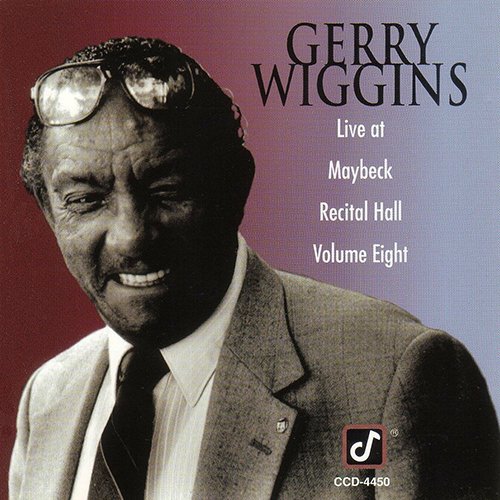Reba McEntire - Reba Duets (2007)

Artist: Reba McEntire
Title: Reba Duets
Year Of Release: 2007
Label: MCA Nashville
Genre: Country
Quality: FLAC (tracks) / MP3 320 Kbps
Total Time: 44:07
Total Size: 309 Mb / 113 Mb
WebSite: Album Preview
Tracklist: Title: Reba Duets
Year Of Release: 2007
Label: MCA Nashville
Genre: Country
Quality: FLAC (tracks) / MP3 320 Kbps
Total Time: 44:07
Total Size: 309 Mb / 113 Mb
WebSite: Album Preview
1. When You Love Someone Like That (Album Version) 04:39
2. Does The Wind Still Blow In Oklahoma (Album Version) 04:37
3. Because Of You (Album Version) 03:43
4. Faith In Love (Album Version) 03:47
5. She Can't Save Him (Album Version) 03:02
6. Everyday People (Album Version) 03:34
7. Every Other Weekend (Album Version) 04:03
8. These Broken Hearts (Album Version) 04:25
9. Sleeping With The Telephone (Album Version) 03:33
10. The Only Promise That Remains (Album Version) 05:06
11. Break Each Other's Hearts Again (Album Version) 03:38
Reba McEntire's Duets project is either the return of one of the biggest stars country music has ever seen, or an effort to try to regain some of that popularity now that another generation of Nashville musicians has claimed the radio, video, and sales spotlight. Duets is only the second album of new songs by McEntire to appear in the last eight years -- an eternity in Nashville (and being the star of a sitcom doesn't count for much). Her last, Room to Breathe, appeared almost four years ago and spawned the hit "I'm Gonna Take That Mountain," propelling the album to a number four position on the Billboard country chart and a brief stay at 25 in the pop chart. That said, a project like this, with so much hype and expense incurred behind and because of it, demands an artist with staying power and a legacy to fall back on, and she has it: for starts, thirty number one singles. As for Duets, there is no shortage of star power, and it's multi-generational in terms of the world of pop music. On one side are contemporary country superstars like Kelly Clarkson -- the album's first single, "Because of You," written when Clarkson was 16 years old, has blown up. Kenny Chesney, Rascal Flatts, Ronnie Dunn, Faith Hill, and LeAnn Rimes are also here. So are major, near-legendary talents like Trisha Yearwood and Vince Gill (it's odd to think of Gill as an elder statesman of country, but in a 30-year career that's what he is), who also have active, busy careers and hit the charts whenever they release material. Then there are the "others," those songwriters who do not fit the country mold but are welcome presences here: Carole King (one of the greatest songwriters ever) and Don Henley appear on two of the most successful tracks in the set. Finally, there's the rogue outsider who is simply a pop superstar: Justin Timberlake. (If you roll your eyes at what he's doing here, you're right: he had an inside connection since his business partner dates McEntire's daughter.)
As for the quality of the tracks -- since most music biz projects like this crash and burn after a few weeks or upon getting trounced by critics -- this one is a mixed bag, but in a good way. McEntire's performance with Rimes on "When You Love Someone Like That" is stellar. The co-written duet between the flaming redheaded country diva and Ronnie Dunn, "Does the Wind Still Blow in Oklahoma?" is an honest to goodness country song, and works as much because of the high lonesome in Dunn's beautiful baritone as it does the headliner's act. "Because of You" may be the hit, but the song is simply a big, overblown power ballad with guitars compressed to the breaking point, sweeping strings, and enormous crashing cymbals -- think Jim Steinman and you get it. (Not that Tony Hit Man Brown's a whole lot different in his own genre, but this could have been a Meat Loaf reject from Bat out of Hell II). A similar problem plagues "Faith in Love" with Rascal Flatts. It's got what it takes for radio, no doubt about it, but it's a song everybody will be sick of sooner rather than later. Things get back on track with "She Can't Save Him," with Yearwood, who is simply a class act as a stylist, and a woman who never over-sings. It's a lilting piano ballad-turned-big number but Yearwood and McEntire are very suited to one another as singing partners. McEntire has great control, and Yearwood has the amazing ability to be a musical chameleon. It would have been lovely to have a Carole King-written number for the occasion of this duet. That said, however, the newly acquired graininess in King's amazing voice is a fine contrast on this pop-country song that rocks it up enough to stretch McEntire. "Every Other Weekend" with Chesney is somewhat underwhelming. Either of them could have pulled this one off alone (you can hear Chesney making this one truly believable), but together, there's a kind of distance in the voices that all of the strings in Brown's world couldn't make gel. Things work a whole lot better with Gill who, like Yearwood, can sing with anyone and allows himself to become whatever he's signing. As a result, both singers sound wonderful on "These Broken Hearts" and McEntire delivers one of those extremely moving performances she's built her well-deserved career on. It's for a Gill-Pete Wasner tune, and it was perhaps written for this session, but nonetheless, she just nails it, and in his support role as a singing partner, Gill rises to the level put forth by McEntire, and this is one of those broken love songs kissed by Steve Nathan's B-3 and the sweet backing vocals of Ashley Cleveland, Judson Spence, and Kim Keyes that can't miss with the strange bridge and chorus with its ghostly backdrop.
"Sleeping with the Telephone" with Hill works just as you think it might: like a charm. Great singing, emotional performances and Dann Huff's addition to the production team of McEntire and Brown on this track saves it from the excess that might have plagued it. It feels natural, polished, and utterly true. The choruses are stirring enough to bring goose bumps. "The Only Promise That Remains," with Timberlake, was written with Matt Morris and is maybe a tad longer than it should be at over five minutes. But that's a small complaint. It's a solid song: acoustically based with some Celtic flavor, and written for the strengths in McEntire's voice (and Brown could learn something about using strings from Timberlake.) Here they don't overpower, they accent the song, and the cello fills are an excellent touch as are the dobro by Rob Ickes and upright bass by Glenn Worf. Timberlake contents himself to sing harmony rather than take solo verses; but that's more about serving the song than about not being able to sing. It's a welcome surprise here. Finally, Henley and McEntire close with "Break Each Other's Hearts Again." And although Henley can write, he doesn't do it well here, which is too bad. He's a great singer when he wants to be, especially as a harmonist. He's superb in that role, and he delivers his verses with conviction and a tawdry elegance that fits the song like a glove. McEntire can really sing with Henley. They were in the same room when it was recorded and the chemistry is right there. The band here should be mentioned, too, since Henley is in familiar company with a rhythm section of drummer Russ Kunkel and bassist Leland Sklar. McEntire's fans will eat this up, and perhaps those of Timberlake and Clarkson and Hill will, too. It's not a perfect record by any means, but it doesn't need to be; it simply has to deliver, and it does more often than not. Whether or not it turns a new generation of fans on to McEntire will remain to be seen, but this feels like anything but a cynical effort. It's sincere, it's polished, and it's full of good to great songs delivered in mostly interesting ways.
As for the quality of the tracks -- since most music biz projects like this crash and burn after a few weeks or upon getting trounced by critics -- this one is a mixed bag, but in a good way. McEntire's performance with Rimes on "When You Love Someone Like That" is stellar. The co-written duet between the flaming redheaded country diva and Ronnie Dunn, "Does the Wind Still Blow in Oklahoma?" is an honest to goodness country song, and works as much because of the high lonesome in Dunn's beautiful baritone as it does the headliner's act. "Because of You" may be the hit, but the song is simply a big, overblown power ballad with guitars compressed to the breaking point, sweeping strings, and enormous crashing cymbals -- think Jim Steinman and you get it. (Not that Tony Hit Man Brown's a whole lot different in his own genre, but this could have been a Meat Loaf reject from Bat out of Hell II). A similar problem plagues "Faith in Love" with Rascal Flatts. It's got what it takes for radio, no doubt about it, but it's a song everybody will be sick of sooner rather than later. Things get back on track with "She Can't Save Him," with Yearwood, who is simply a class act as a stylist, and a woman who never over-sings. It's a lilting piano ballad-turned-big number but Yearwood and McEntire are very suited to one another as singing partners. McEntire has great control, and Yearwood has the amazing ability to be a musical chameleon. It would have been lovely to have a Carole King-written number for the occasion of this duet. That said, however, the newly acquired graininess in King's amazing voice is a fine contrast on this pop-country song that rocks it up enough to stretch McEntire. "Every Other Weekend" with Chesney is somewhat underwhelming. Either of them could have pulled this one off alone (you can hear Chesney making this one truly believable), but together, there's a kind of distance in the voices that all of the strings in Brown's world couldn't make gel. Things work a whole lot better with Gill who, like Yearwood, can sing with anyone and allows himself to become whatever he's signing. As a result, both singers sound wonderful on "These Broken Hearts" and McEntire delivers one of those extremely moving performances she's built her well-deserved career on. It's for a Gill-Pete Wasner tune, and it was perhaps written for this session, but nonetheless, she just nails it, and in his support role as a singing partner, Gill rises to the level put forth by McEntire, and this is one of those broken love songs kissed by Steve Nathan's B-3 and the sweet backing vocals of Ashley Cleveland, Judson Spence, and Kim Keyes that can't miss with the strange bridge and chorus with its ghostly backdrop.
"Sleeping with the Telephone" with Hill works just as you think it might: like a charm. Great singing, emotional performances and Dann Huff's addition to the production team of McEntire and Brown on this track saves it from the excess that might have plagued it. It feels natural, polished, and utterly true. The choruses are stirring enough to bring goose bumps. "The Only Promise That Remains," with Timberlake, was written with Matt Morris and is maybe a tad longer than it should be at over five minutes. But that's a small complaint. It's a solid song: acoustically based with some Celtic flavor, and written for the strengths in McEntire's voice (and Brown could learn something about using strings from Timberlake.) Here they don't overpower, they accent the song, and the cello fills are an excellent touch as are the dobro by Rob Ickes and upright bass by Glenn Worf. Timberlake contents himself to sing harmony rather than take solo verses; but that's more about serving the song than about not being able to sing. It's a welcome surprise here. Finally, Henley and McEntire close with "Break Each Other's Hearts Again." And although Henley can write, he doesn't do it well here, which is too bad. He's a great singer when he wants to be, especially as a harmonist. He's superb in that role, and he delivers his verses with conviction and a tawdry elegance that fits the song like a glove. McEntire can really sing with Henley. They were in the same room when it was recorded and the chemistry is right there. The band here should be mentioned, too, since Henley is in familiar company with a rhythm section of drummer Russ Kunkel and bassist Leland Sklar. McEntire's fans will eat this up, and perhaps those of Timberlake and Clarkson and Hill will, too. It's not a perfect record by any means, but it doesn't need to be; it simply has to deliver, and it does more often than not. Whether or not it turns a new generation of fans on to McEntire will remain to be seen, but this feels like anything but a cynical effort. It's sincere, it's polished, and it's full of good to great songs delivered in mostly interesting ways.




![Frank Sinatra - Christmas (Remastered) (2013) [Hi-Res] Frank Sinatra - Christmas (Remastered) (2013) [Hi-Res]](https://www.dibpic.com/uploads/posts/2025-12/1765618088_fsc500.jpg)

![Club Bolero, Armik - A Day in Brazil (2007) [Hi-Res] Club Bolero, Armik - A Day in Brazil (2007) [Hi-Res]](https://img.israbox.com/img/2025-12/15/5l607nskcv4xb0n237d8ngs7q.jpg)
![Tomasz Stańko - Unit (Polish Radio Sessions vol. 2/6) (2025) [Hi-Res] Tomasz Stańko - Unit (Polish Radio Sessions vol. 2/6) (2025) [Hi-Res]](https://www.dibpic.com/uploads/posts/2025-12/1765790300_cover.jpg)
